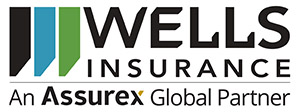Protect your home with a flood insurance policy from Wells
Flooding is one of the most common – and costly – natural disasters in North Carolina, especially along the coast. Whether you live in Wilmington, Southport, Hampstead, Leland, Burgaw, or a nearby low-lying area, having the right flood insurance in NC can mean the difference between a swift recovery and financial hardship. At Wells Insurance, we help North Carolinians protect their homes and businesses with tailored flood insurance solutions, backed by over 100 years of experience serving coastal communities.


